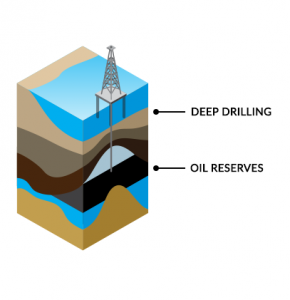All Categories
Featured
Table of Contents
Career Opportunities In Geology in Wilson Western Australia 2021
This work is increasingly contracted out, so consultancies supply another source of work. Consultancy firms vary in size, from extremely little companies to big multinationals. Some consultancies are quite specialised in utilizing particular geophysical techniques or operating in particular areas, while others provide a more varied variety of services to their consumers.
The extraction of gas from garbage dump websites is another location of employment and this may grow in the future. Expedition business may undertake work for building firms, public utility, mining business and environmental firms, so geophysicists may be used in any of these settings. Other companies consist of: geological surveysgovernment bodies and agenciesuniversities and research institutes.


Jobs might be listed in the oil and gas sector press. Recruitment is impacted by oil cost fluctuations and the level of competitors for positions differs depending upon this. Careers Days, which cover the full variety of geoscience professions and are usually participated in by a variety of key market employers, are run by The Geological Society.
Gravity Geophysical Survey Method in Middle Swan Australia 2022
A few of the large oil and gas business provide a complete two-year structured training program across the breadth of geophysics, consisting of the chance to experience work in various groups before specialising in one location. Your training might include deal with: existing wellsmagnetic and gravitational potential field information analysisresearchrock analysis. However, it's more normal for your preliminary training to be supplied on the task.

There might be a probationary period during which you work along with an experienced coworker. Competency-based appraisals take location frequently in most companies. In smaller sized firms, and for scholastic posts, there is unlikely to be any official training - you'll be expected to start work straightaway and choose up skills as you go along.
If you work for a smaller sized business, you might discover that you need to take responsibility for setting up and moneying your own development and training. If you have a geology degree, membership of The Geological Society can be helpful for networking and for maintaining to date with the industry.
Geophysicist, Exploration - Job Descriptions in North Lake Oz 2021
You may likewise find it useful to join the PESGB (The Petroleum Expedition Society of Great Britain, which has a geophysics special interest group. After a probationary duration, and once you have actually gained some experience, you might progress to senior geophysicist, then group leader and then into a senior function in management.
The ease of movement in between roles depends upon the company structure. Research study at Masters or Ph, D level in a subject related to geophysics or geosciences might assist with your profession development and progression. The work market within the oil and gas market is very based on price and this might impact your opportunities for career development.
For knowledgeable geophysicists, freelance consultancy offers a good path for profession advancement. As a geophysicist, you're likely to have several tasks throughout your working life.
Bsc Geophysics in Gooseberry Hill WA 2022
From geophysics, it's possible to concentrate on seismology (finishing more training to become a seismic interpreter) or to move into related locations such as engineering geology or risk prediction.
Deciding what to study in college is a tough option. Even if you know that your field of interest lies in science, what program of study is right for you? If you make the choice to major in physical and biological sciences and pursue a career as a geophysicist, you're preparing for an amazing and rewarding profession.
The first action to attaining your goal of becoming a geophysicist is making a degree. Even for entry-level positions in the field of geoscience, you'll need a bachelor's degree (a geophysicist college degree) from a certified college or university. Geophysicists need to be able to: evaluate rocks, photos, and other pieces of data perform research study both in the field and in laboratories produce maps and charts of their findings compose reports To accomplish all this, trainees require a specialized education for geophysicist professions.
As specified above, you'll need a bachelor's degree in geoscience or a related discipline, such as a physical science or a life sciences, to land an entry-level task. However trainees can likewise prepare by majoring in topics like: Biology Chemistry Computer technology Engineering Mathematics Physics The above geophysicist majors offer a more generalized technique to a single clinical discipline, but the majority of programs require trainees to take one or more geology course.
Latest Posts
Geophysical Survey Methods in Champion Aus 2021
Geophysical Survey - Salisbury Archaeology in Hocking Australia 2021
What Can I Do With A Major In Geophysics? in Carine Australia 2023